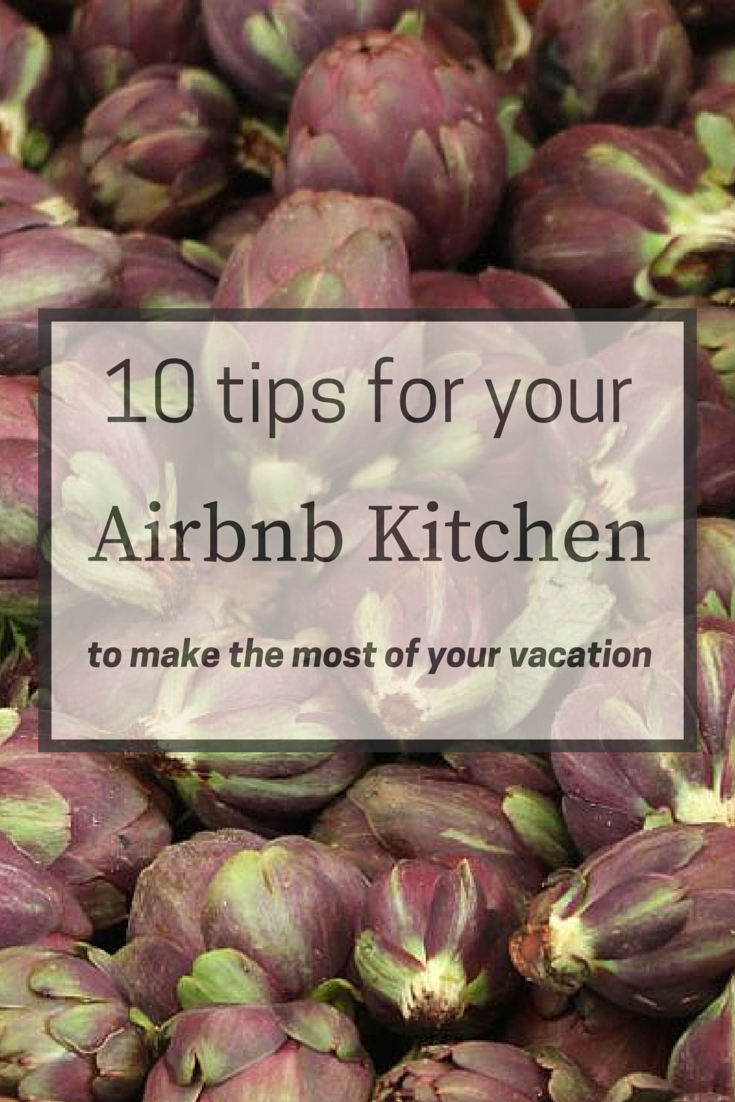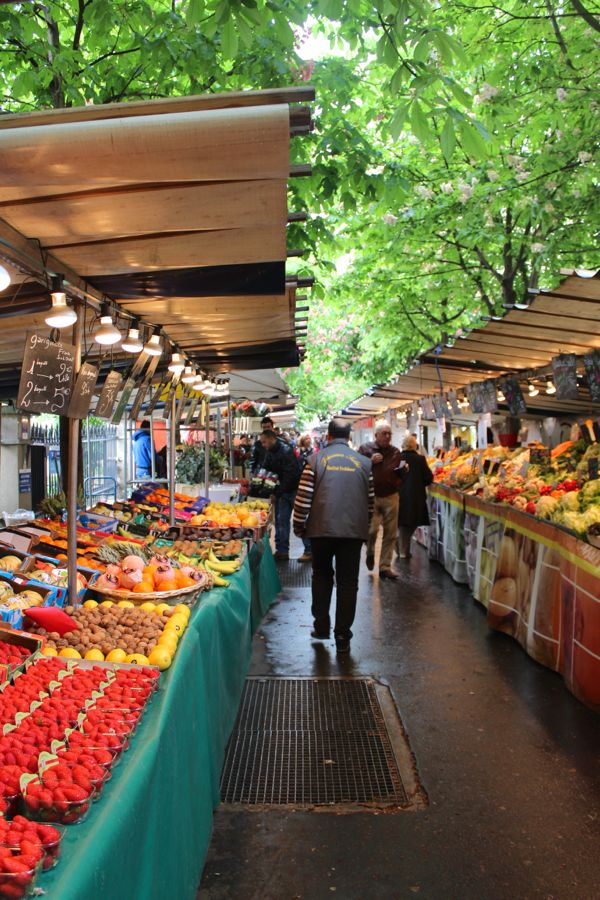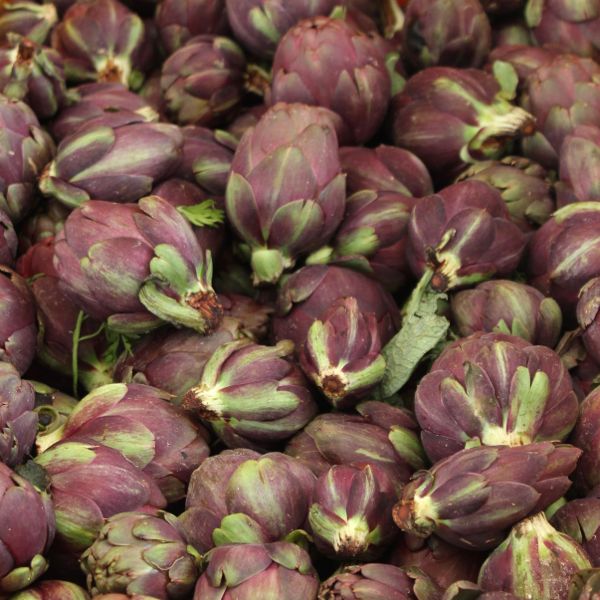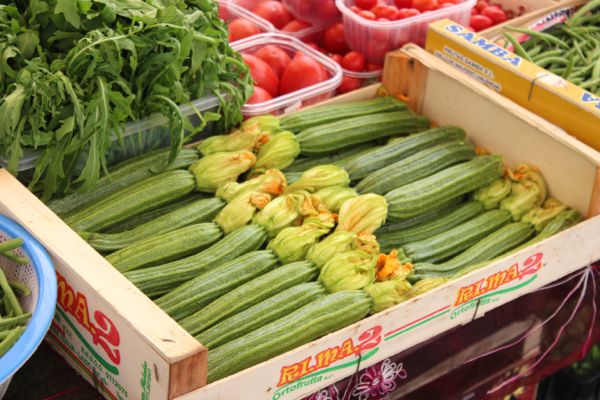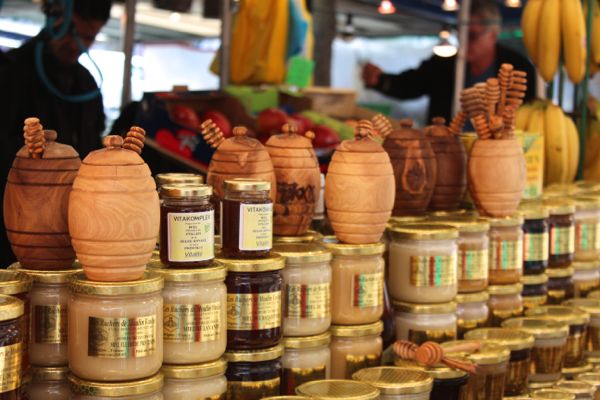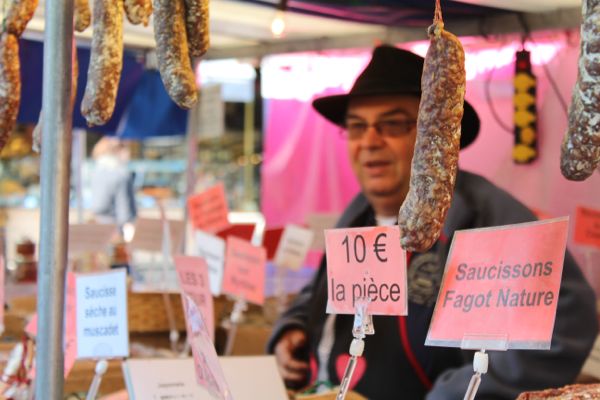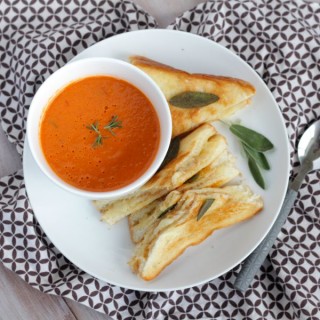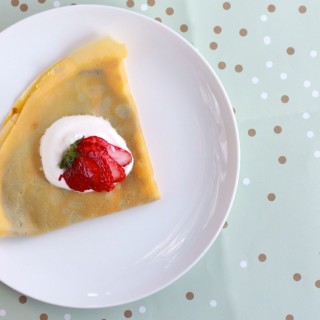My husband and I stayed in Airbnb apartments for the first time on a recent trip to Europe. We wanted to feel like we lived in the cities we visited; we wanted to go to the local grocery stores, to grab a morning coffee at the cafe around the corner, and to have the option to make a meal or two. We had a great time, but experienced mixed results with our Airbnb apartments. I’ll spare you the details, but let’s just say that one was fantastic and the other was not so great. I did learn a lot about how to make the most of your kitchen, however, and I thought I’d share a few tips for your Airbnb kitchen. Hopefully it will save you some money or time, and maybe even save you from potential disappointment!
1. Don’t expect it to be like your kitchen at home. Go in with relatively low expectations about what kind of equipment, tableware and pantry ingredients you’ll find. People generally don’t live in these apartments, so they’re not always set up for elaborate cooking. Often, they’re not really even set up for the most basic cooking. And keep in mind the fact that you may be in a foreign country, where ingredients that you use daily may not be easily accessible. I’m not trying to be pessimistic, I promise, but if you don’t expect an amazing kitchen then you may be pleasantly surprised! And at the very least you won’t be disappointed.
2. Bring your own essential equipment. I’m not talking about an immersion blender, although I could see myself packing one under the right circumstances! Specifically, a sharp knife and a small, lightweight cutting board (this Kuhn Rikon pairing knife travels brilliantly). Those are the things I can’t live without. You can always slice some bread, sausages and cheese for a delicious meal even if your pots and pans are terrible. Consider bringing a can opener, if you can fit a small one in your luggage. I never expected to need, one, but we bought a tin of lovely foie gras from a farmers market and had to go searching for a way to open it (first world problems!). A wine bottle opener would also be useful you’re checking luggage anyways. Imagine how sad you’d be to bring a bottle of wine back to the apartment and have no way to open it! Honestly though, that’s how people get hurt – trying to get creative when opening tins and bottles. Oh, and OBVIOUSLY I don’t need to remind you to pack these knives and openers in your check-in luggage, right?
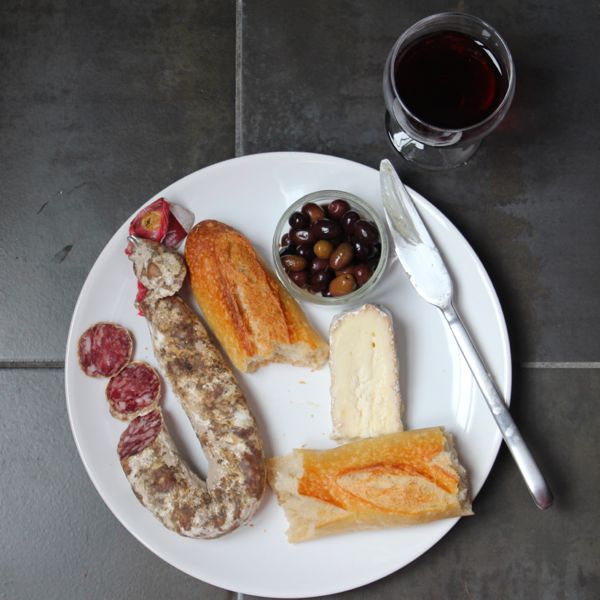
3. Bring your own can’t-live-without ingredients that you may not be able to find in your travel location. Can’t live without peanut butter toast in the morning? Don’t assume you can find peanut butter everywhere. Do some research first. Do you need your chamomile tea before bed? Bring your favorite tea bags. Do you love finishing your dishes with flaky sea salt? Bring a little tin of it.
4. Be prepared to spend a little bit of money on supplies. One of our apartments didn’t have salt, pepper or sugar. You could certainly bring these if you have space, but they’re generally cheap enough that you can buy them in small containers there. We left the extra at the apartment and didn’t feel like we’d wasted money. If you are cooking food from the region you’re visiting, you can buy spices and other items there and bring them back with you. “Oh that herbes de Provence on your lamb? Brought it back from France. The olive oil? Just picked it up in Italy.”
5. Make sure appliances work as soon as you get there. Is the refrigerator actually cold? The freezer works? The stove turns on? Etc., etc. If it doesn’t work, tell your host. If they don’t fix it, you may be eligible for a refund but you MUST TELL AIRBNB ASAP. If you wait until after your trip, it’s too late. I know this from experience.
6. Check the cooking equipment before you go shopping or plan a meal. It’s really disappointing to bring back ingredients for a dish or something to snack on and then find out that the flat isn’t equipped to handle it (see #3)! Don’t take anything for granted. If you want to make pasta, make sure there’s a pot and a colander, or at least something you can use to scoop the pasta out of the pot with! I promise, you should check for something as simple as a frying pan.
7. Make sure you can clean up after yourself. Is there dish soap and a sponge? A dish towel and/or drying rack? Do you have paper towels or a cloth to clean up the table and counters?
8. See if there are enough place settings and the appropriate dishes. That way you don’t buy cereal for breakfast only to discover that you don’t have any bowls. Or that you and your partner don’t end up sharing a fork with that delicious gourmet meal you cooked. Or need to use toilet paper for napkins. You get the point. You can get disposable bowls or plates, or you can use a lack of bowls it as an excuse to buy yourself a set of handmade ceramic ones as a souvenir!
9. Check expiration dates on anything in the flat. Before you use anything, check it’s freshness! You have no idea how long it’s been there. Herbs and spices can loose their flavor, so check them before you plan a meal around them.
10. Take advantage of local markets to both feed yourself and explore the city. Use them to learn about local cuisine, buy organic produce, support the local economy, meet new people and see different neighborhoods. Not only can you buy food for your picnic or your meals by going to farmer’s markets, but you can also find fantastic souvenirs or gifts as well! Look for local jam or honey, spices that are important to that region, oils, nuts or other jarred goods. And barring any language barrier issues, most vendors or farmers are excited to talk about their products and how to use them in your own cooking, so you’ll have a great story to accompany your purchases.
